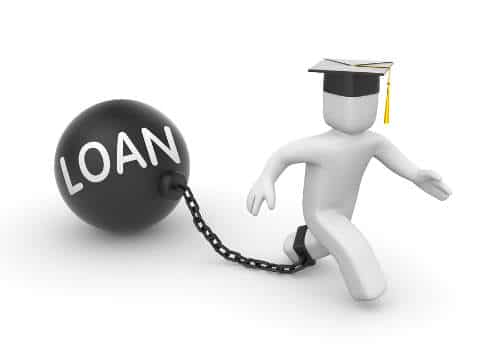Federal student loan defaults are way up – rising to 8.8% in fiscal year 2009, compared to 7.0% in 2008, according to new data released in September 2011 from the Department of Education.
The numbers represent the most recent figures available about federal student loans, and they show that scores of borrowers continue to struggle with college debt.
And unfortunately, the data don’t tell the full story. The government’s numbers only track student loan defaults over a given two-year period. Starting next year, the feds will track defaults in three-year periods. By that measure, the Department of Education expects the default rate to top 12%.
Four Options to Fix a Defaulted Student Loans
I’ve written in the past about how to get an overdue student loan back on track.
It essentially boils down to one of four options:
• Consolidate the loan(s)
• Enter a loan rehabilitation program
• Pay the loan(s) off completely
• Get the loan(s) totally discharged or canceled
The last two are probably not realistic options. I know you don’t have the money to pay off the loan(s). That’s why you’re in this predicament; and loan cancellations are rare (though they can be obtained).
You’ll likely have to “rehabilitate” your loan(s) or consolidate.
Should You “Rehabilitate” Your Loans or Consolidate?
Before you can consolidate, you have to bring your loan(s) out of default status.
You do this by making just three monthly payments — on time, and in any amount that you and your lender agree upon.
To find out if you qualify for loan consolidation, contact the Federal Direct Consolidation Loan Info Center at 800-557-7392 or go online to http://loanconsolidation.ed.gov.
If you call, the staff there should be able to tell you what your monthly payment will need to be for those three months while your loan is in repayment.
The one drawback to consolidation is that your credit remains tarnished. Even though your loan will be paid off and listed as “paid in full” on your credit report, you’ll get a new loan through consolidation and that previous default still shows on your credit report for seven years.
The Benefits of Student Loan Rehabilitation
An alternative, to fix your credit, and have all past negative information about your student loans completely deleted from your credit file is to go through loan rehabilitation:
In a nutshell, with rehabilitation you make 9 or 12 on-time payments on your student loans in an amount you can afford. You make nine monthly payments on Direct Loans and Federal Family Education Loans, or 12 monthly payments on Perkins Loans.
This, in my opinion, is the preferred route as it will help you restore your credit in a big way, so your past default won’t haunt you for years to come.
A Guidebook for Cash-Strapped Borrowers from the Department of Education
For more details about various alternatives to cure your student loan delinquency, check out the Department of Education’s guidebook called “Options for Financially-Challenged Borrowers in Default.”
Here is a link to the guide online: http://www.ed.gov/offices/OSFAP/DCS/forms/2004.Borrower.Options.pdf








